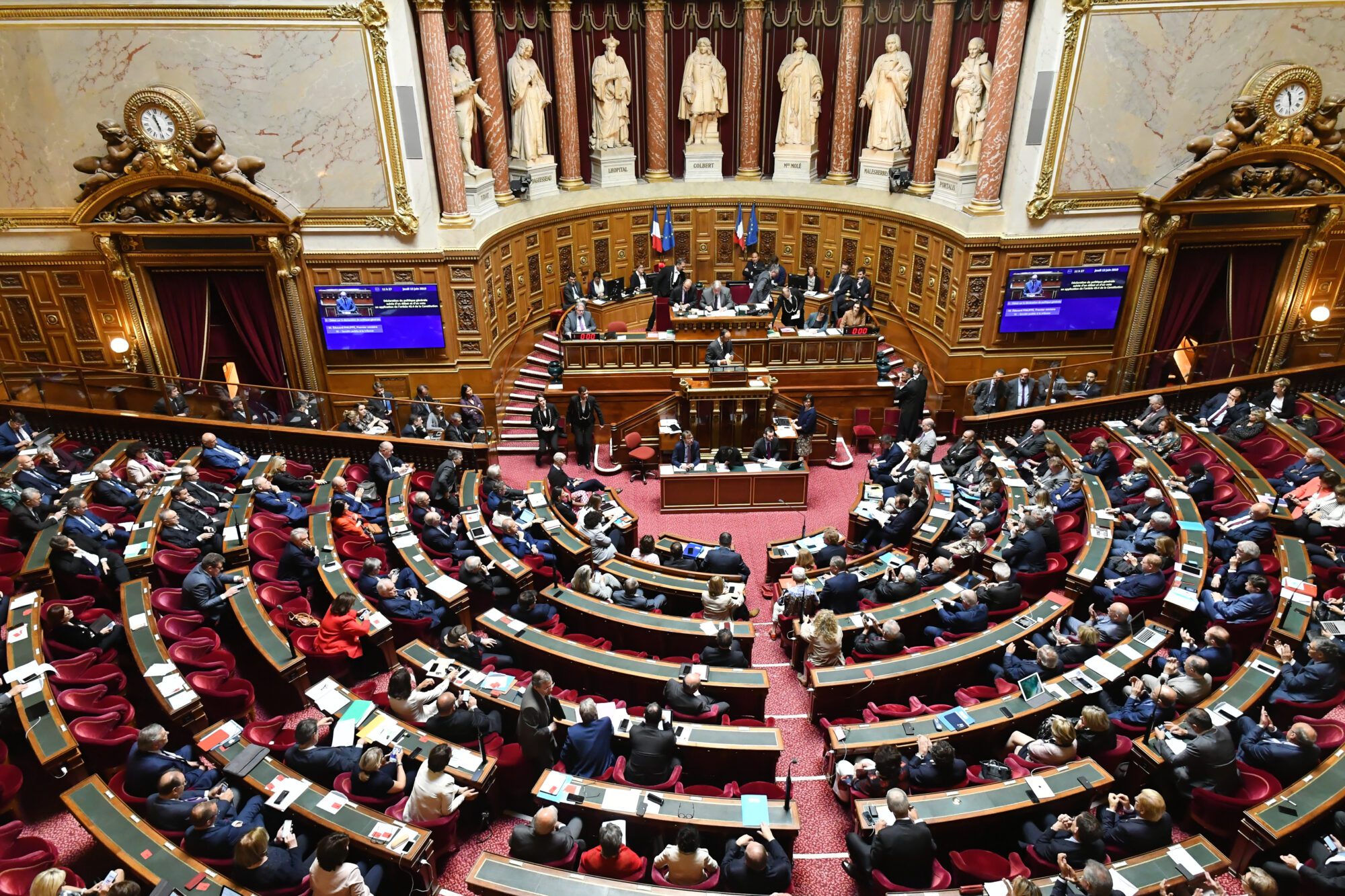
Photo: Jo Bouroch / Shutterstock.com
The French Senate has amended proposed reforms to the country’s immigration system, making the language of the document tougher in areas of birthright citizenship, family reunification, and welfare benefits.
The largely conservative French Senate adopted the new immigration bill on its first reading by a vote of 210 to 115, following around a week of debate and amendments to the bill, Le Figaro reports.
Among the amendments described by Les Républicains Senator François-Noël Buffet as “beefing up” the text of the bill were abolishing state medical aid, introducing quotas for migrants, more powers to facilitate the expulsion of illegal immigrants, and restrictions on the ability of migrants to bring their family members to France.
“Regular immigration is chosen; our choice is that of qualitative economic immigration and quality integration. And on illegal immigration, there is zero tolerance. We need to be clear,” he said.
Senator Olivier Bitz, who is part of the faction allied with President Emmanuel Macron, stated that, while the Macronist faction voted for the new measures, they were still critical of some aspects, such as abolishing state medical aid for migrants, saying, “This is a serious mistake in terms of public health.”
In 2021, it was revealed that the French government budgeted a massive 1 billion euros for medical and healthcare costs for illegal migrants, which did not cover emergency care, as hundreds of thousands of illegal migrants benefit from state medical aid.
The programme has been criticised for years by conservative politicians, with some arguing that the state medical aid should only cover emergency care rather than 100% of migrants’ medical expenses.
French left-wing senators were highly critical of the immigration bill, with Communist Ian Brossat calling it “tough … cruel … it’s an absolute disgrace.”
Interior Minister Gérald Darmanin, who is the main figure behind the immigration reform, stated that he was happy with the Senate’s amendments to the bill, saying, “Not many people would have bet that this text, although amended, would be adopted, including with a regularisation measure. I welcome that.”
Darmanin has called for immigration reform for over a year, largely focusing on the issue of deporting illegal immigrants who already have orders to leave France.
In November of last year, Darmanin proposed to cut off social benefits to those with an Obligation to Leave French Territory (OQTF), saying, “The prefect will make it impossible for them to live, for example, by ensuring that they no longer receive social benefits or social housing. We are shifting gears.”
The shift in policy came as many noted how few OQTFs are actually carried out, with just 18,000 forced departures in 2021 despite there being 122,000 OQTFs issued that year.
Darmanin also proposed to put all those with an OQTF on the criminal wanted person lists and to simplify the procedures for those who wish to make appeals.
Earlier this year, Darmanin stated that he wanted to see dangerous illegal immigrants deported far more swiftly, saying that France would deport them even before they would have an opportunity to file an appeal with the European Court of Human Rights (ECHR).
“But should we keep [them] with us when they can also cause death in our country?” Darmanin said, referring to dangerous illegal migrants, and added, “What is the role of the interior minister? To protect the population.”
Following the Senate vote, the immigration bill will pass to the French National Assembly, where it may be further amended and debated as President Macron’s bloc does not have a majority in the chamber.
The second-largest party in the National Assembly, the populist Rassemblement National (RN), led in the chamber by MP Marine Le Pen, is likely to support the tougher measures voted on by the French Senate, but allies of Macron, along with the Left, may oppose some of the measures.
Le Pen has previously called for a number of national referendums on immigration, which would have included votes on birthright citizenship, restrictions on family reunification, and outsourcing asylum claims overseas.
